A Bold Stance for Inclusion: Indiana United Methodists Champion Justice
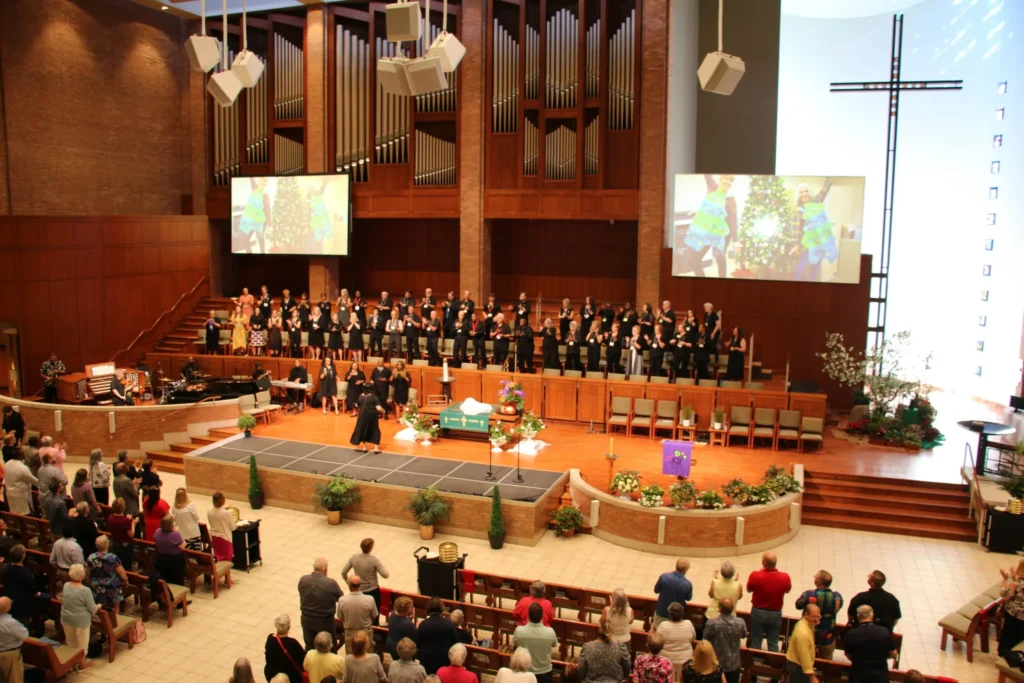
Indiana United Methodists
Introduction to Indiana United Methodists’ Advocacy
Indiana United Methodists have long been recognized as a community dedicated to the principles of social justice and inclusion. Historically, the denomination has taken significant strides toward advocating for marginalized groups, reflecting a commitment to the United Methodist Church’s overarching mission of reflecting Christ’s love to all of humanity. This commitment is rooted in a rich heritage of social activism, stemming from a theology that emphasizes grace, equality, and a call to justice.
In present times, Indiana United Methodists have found themselves at a crossroads, as societal shifts and increased awareness of social inequities heighten the need for a clear stance on inclusion. Many congregations and their leaders are responding to the plight of marginalized communities, both within the church and in broader society. This advocacy has given rise to a series of bold actions aimed at dismantling barriers and promoting equity, as church members grapple with questions of identity, belonging, and acceptance.
As the conversation about justice and inclusion unfolds, Indiana United Methodists face various challenges, both internally and externally. These include reconciliation with differing views on social issues, the historical treatment of LGBTQ+ individuals, and the broader societal landscape that often marginalizes these communities. Church leaders and laypeople alike are actively engaged in dialogue and initiatives aimed at fostering understanding and compassion, embodying the principle that all individuals are created in the image of God.
In navigating these complex issues, Indiana United Methodists are setting a precedent for inclusivity and justice, affirming their commitment to advocate for those who have been historically disregarded. This blog post will explore the intersection of faith and justice, highlighting the courageous stances taken by Indiana United Methodists as they champion the call for an inclusive and just community within both the church and the world at large.
The Significance of Inclusion in the United Methodist Church
The United Methodist Church (UMC) is built upon a foundation of core beliefs and values that emphasize inclusivity as a vital aspect of its community. Central to these beliefs is the understanding that all individuals are created in the image of God, which inherently grants them dignity and value. This theological underpinning serves as a guiding principle for the UMC, advocating for an environment in which every person, regardless of their background, identity, or beliefs, is welcomed and embraced. In this context, inclusion is not merely a sociocultural phenomenon; it is a spiritual imperative that reflects the nature of God’s love.
Interpretations of scripture within the UMC highlight the importance of inclusivity. Many passages affirm that the Christian faith is open to all people. For example, Galatians 3:28 explicitly states that there is “neither Jew nor Gentile, neither slave nor free, nor is there male and female, for you are all one in Christ Jesus.” This scripture underscores a foundational belief in equality and unity among believers, creating a powerful argument for inclusivity. By recognizing and addressing various forms of exclusion, the church advocates for justice and compassion that resonates deeply with these biblical principles.
Furthermore, fostering an inclusive environment is essential for nurturing the spiritual growth of individuals within the church community. An affirming and supportive atmosphere allows diverse voices and experiences to enrich the collective faith journey. Encouraging members to engage with one another’s stories fosters understanding and compassion, reinforcing the church’s mission to enact God’s love in the world. Thus, the significance of inclusion in the United Methodist Church extends beyond mere acceptance; it embodies a commitment to justice, community, and love that is central to the UMC’s identity.
Recent Events and Actions by Indiana United Methodists
In the past year, Indiana United Methodists have taken significant strides to oppose discriminatory practices and advocate for justice in their communities. One notable event was the “Justice for All” conference held in April, which gathered church leaders, activists, and community members to discuss issues of inclusion and equity within the church and broader society. This event illustrated a collective commitment to fostering a culture of acceptance and understanding.
Furthermore, a series of statements released by the Indiana Conference of the United Methodist Church have underscored their unwavering support for marginalized communities. The conference denounced harmful rhetoric and actions, affirming a stance against racism, sexism, and homophobia. Leaders within the church emphasized that justice is an essential aspect of their faith, embedding the call for equity within their theology.
Additionally, various local congregations have launched initiatives aimed at creating welcoming environments for all individuals, irrespective of their backgrounds. For example, St. John’s United Methodist Church implemented a mentorship program designed to support LGBTQ+ youth by providing safe spaces and fostering personal growth. This initiative not only empowers individuals but also serves as a model for other churches aiming to embody inclusive values.
Moreover, Indiana United Methodists have aligned with various social justice movements, participating in protests and community service projects that reflect their dedication to uplifting oppressed voices. These actions have included collaborations with local organizations focused on food justice, affordable housing, and educational equity, showcasing the church’s commitment to being active participants in the social transformation process.
Through these recent events and sustained actions, Indiana United Methodists demonstrate a bold and proactive approach to advocacy. By challenging discriminatory behaviors and promoting justice, they affirm their mission to create a more inclusive and equitable society.
Responses to the Bold Stance: Community Reactions
In the wake of the Indiana United Methodists’ bold stance for inclusion and justice, a spectrum of reactions has emerged from a variety of stakeholders, including congregants, community members, and other religious leaders. Supporters within the church community have praised this decision as a significant step towards creating a more inclusive and loving environment, emphasizing the church’s mission of love and acceptance that aligns with their core values. Many congregants express a sense of validation and empowerment, feeling that their identities and experiences are being uplifted and acknowledged by the institution. The shift is seen not only as a moral imperative but also as an essential evolution for the relevance of the church in contemporary society.
Conversely, dissenting opinions have also surfaced, highlighting concerns from a segment of congregants and external observers who feel that the church’s stance may deviate from traditional interpretations of scripture. Critiques often stem from fears regarding theological implications and potential fractures within the congregation. Some critics argue that this move could alienate long-standing members who uphold conservative beliefs and may challenge existing dynamics within the church community. As a result, the bold stance may initiate difficult conversations about faith, identity, and societal values, with some communities bracing for potential turbulence in church attendance and engagement.
Beyond the church walls, community reactions have reached various local organizations and interfaith groups, whose views span a wide spectrum. Many local leaders and social justice advocates commend the Indiana United Methodists for their commitment to inclusivity, viewing it as a catalyst for broader societal change. They believe that this bold stance will foster increased dialogue about justice and inclusion across different faiths and denominations. The overall impact on church dynamics and relationships with the wider community remains an ongoing discourse, illustrating the complexities and challenges presented by such significant shifts within religious institutions.
Challenges Ahead: Navigating Opposition
As the Indiana United Methodists pursue a bold stance for inclusion and justice, they must navigate a series of challenges that arise both within the church and the greater community. Among these challenges are potential pushbacks from conservative factions, who may staunchly oppose any progressive changes in policies and beliefs. This resistance can manifest in various forms, including verbal criticism, organized campaigns against inclusion initiatives, and even social ostracism of advocates who openly support justice.
Social dynamics in faith communities are often complex, particularly when entrenched beliefs collide with the aspirations for inclusivity. Conservative members may view efforts for justice as a threat to traditional values, leading to heightened tensions within congregations. These dissenting voices can undermine the progress made by those advocating for change, creating an environment of division rather than unity. Striking a balance between remaining true to one’s convictions while also fostering dialogue can be extremely strenuous for advocates.
Additionally, the psychological effects on supporters advocating for inclusion cannot be overlooked. The pressure to conform to prevailing norms can weigh heavily, resulting in stress, anxiety, and isolation among those championing the cause. Advocates may find themselves grappling with feelings of uncertainty as they face the prospect of being marginalized or rejected by their peers. This emotional burden can hinder their ability to effectively promote justice and may deter others from joining the cause.
Ultimately, fostering unity while confronting deeply ingrained beliefs requires careful navigation. The Indiana United Methodists’ journey is marked by the necessity to engage in meaningful dialogues that address dissenting views with respect and understanding. By acknowledging the fears that underpin opposition, advocates can work towards finding common ground, even amidst divergent perspectives. Recognizing the complexities of these challenges will be crucial as they strive for a more inclusive faith community.
Inspirational Stories of Change and Inclusion
In Indiana, the United Methodist Church has become a beacon of hope and transformation for many individuals and families who have long felt marginalized and excluded. Through the church’s commitment to inclusion, numerous personal stories have emerged, illustrating the profound impact of acceptance within the community. These narratives not only reflect individual resilience but also highlight the collective strength that arises when a community actively champions justice and inclusion.
One notable story is that of Sarah, a transgender woman who faced rejection from her previous congregations due to her identity. Upon finding the Indiana United Methodist Church, she was welcomed without hesitation. The congregation not only embraced her but also committed to understanding her journey. Sarah describes how this acceptance has allowed her to fully express her identity and connect with others in meaningful ways. “It felt like finally coming home,” she recalls, emphasizing the transformative power of faith-oriented acceptance in her life.
Similarly, the story of Marcus, a young Black man who grew up in a conservative environment that dismissed his worth, resonates with many. When he joined the Indiana United Methodist Church, he was met with genuine support and affirmation. Marcus’s experiences of being celebrated for his unique contributions and perspectives have empowered him to become a vocal advocate for inclusion within the wider community. He illustrates how the church’s bold stance on inclusion has not only changed his life but also encouraged others to embrace their authentic selves.
These stories exemplify the real-world impact that the Indiana United Methodist Church’s commitment to inclusion has on individuals and families. Through acts of acceptance and love, the church has become a transformative force, fostering an environment where marginalized voices are not just heard but celebrated. Such narratives inspire both current and potential members of the community, reinforcing the notion that inclusion is not merely a social cause but a deeply spiritual journey towards justice.
The Role of Youth and Emerging Leaders
Youth and emerging leaders within the Indiana United Methodist Church play a pivotal role in championing inclusion and justice. These individuals bring fresh perspectives and a renewed sense of purpose to longstanding issues within their congregations and communities. Driven by a passionate desire to create equitable environments, they are actively engaging in advocacy and activism that prioritize the voices of marginalized groups.
In recent years, there has been an increasing acknowledgment of the significance of youth involvement in church initiatives. The Indiana United Methodist Church has created platforms for these leaders to speak out against injustice, pushing forward the narrative of inclusivity within the church. Emerging leaders participate in forums, seminars, and discussions where they share their insights on how the church can better reflect the diverse nature of society. Their contributions are not only valuable but essential for the church’s evolution in an ever-changing cultural landscape.
These young advocates are also instrumental in driving programs that promote education on social justice issues. They lead workshops, organize outreach activities, and mobilize their peers to take part in community service projects that address systemic inequalities. Moreover, their use of social media amplifies their message, allowing them to reach wider audiences beyond the walls of their churches. Through campaigns and partnerships with local organizations, youth leaders are turning their passion for justice into meaningful action.
As they challenge traditional paradigms, youth and emerging leaders are redefining what it means to be a part of the Indiana United Methodist Church. Their commitment to fostering an inclusive environment ensures that the principles of equity and access resonate throughout their ministries. By leading with compassion and purpose, these young individuals will undoubtedly shape the future of the church, leaving a legacy rooted in justice and inclusivity for generations to come.
Looking Forward: Vision for a Just Future
The Indiana United Methodists are steadfastly committed to shaping a just future rooted in the principles of inclusion and social justice. Their visionary approach stems from a belief that active engagement and advocacy can foster meaningful change within communities. Grounded in faith, the Indiana United Methodists envision a culture where all individuals are respected, valued, and empowered, regardless of their background, identity, or circumstances.
Central to this vision is the goal of establishing long-term partnerships with organizations that share similar values and objectives. By collaborating with local nonprofits, advocacy groups, and community organizations, Indiana United Methodists aim to amplify their impact on social issues such as racial justice, LGBTQ+ inclusion, and economic equity. These partnerships will enable them to pool resources, share expertise, and drive collective action, ultimately creating a stronger collective voice advocating for justice and inclusivity in society.
Moreover, the Indiana United Methodists plan to expand their outreach efforts and educational programs. By offering workshops, training sessions, and community events, they aim to raise awareness about social justice issues and empower individuals to take action. This focus on education is crucial to nurturing a new generation of leaders who not only understand the importance of inclusion but are also equipped to implement change within their own communities.
As they look to the future, Indiana United Methodists remain resolute in their mission to dismantle barriers and combat injustices. Their vision extends beyond mere tolerance, striving instead for active acceptance and celebration of diversity. The intentionality behind their commitments is expected to cultivate a stronger sense of community, fostering an environment where every voice is heard, and every individual has the opportunity to thrive.
Conclusion: The Path of Love and Justice
Throughout this blog post, we have examined the pivotal role Indiana United Methodists play in advocating for inclusion and justice within their communities. The recent bold actions taken by the church not only affirm their commitment to these values but also serve as a catalyst for meaningful change. By addressing issues of discrimination and exclusion, they exemplify how faith can be a powerful force in the pursuit of equity and social justice.
The commitment of the Indiana United Methodists to uphold the dignity of every individual underscores the importance of love and justice as foundational tenets of their mission. Their stance sends a clear message that faith communities can and should actively engage in dialogues surrounding difficult social issues, challenging systemic inequality and promoting a culture of belonging for all. The engagement of congregations in such dialogues reflects a willingness to confront uncomfortable truths and foster a more inclusive environment.
As advocates for inclusion, Indiana United Methodists encourage every individual to reflect on their responsibilities within their own communities. Embracing justice requires collective action, and the church invites everyone to join in this transformative journey. This path is not merely about recognizing disparities, but also about taking tangible steps to uplift marginalized voices and ensure that all individuals are afforded respect and dignity.
In light of the recent actions taken by Indiana United Methodists, it is essential for each of us to consider how we can contribute to the ongoing fight for inclusion and justice. Whether through community service, educational efforts, or simply being a voice for the voiceless, our united efforts can help create a more equitable society. Together, we can further the mission of love and justice, igniting hope and fostering a spirit of solidarity in every corner of our communities.

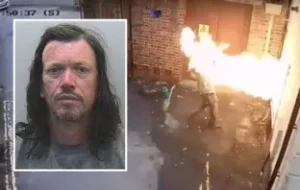
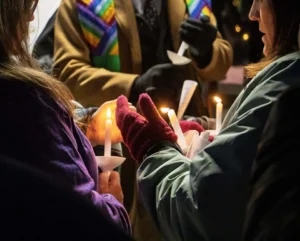
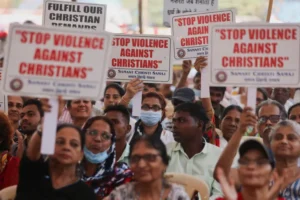
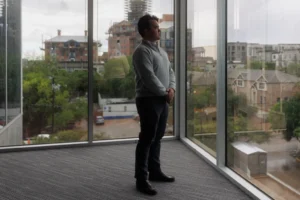

Leave a Reply
You must be logged in to post a comment.